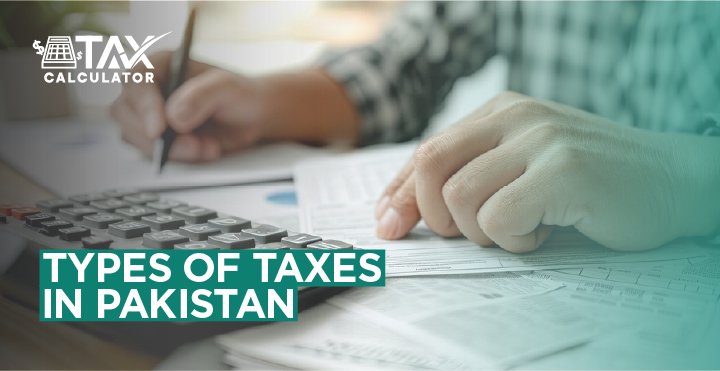A lot of people, especially small business owners, freelancers, and even side hustlers, use the terms “bookkeeping” and “accounting”. They sound kinda similar, and they are definitely connected, but they are not the same thing.
Bookkeeping is recording your sales, expenses, invoices, payments, and all the day-to-day stuff. Accounting takes all of that information and assists you in figuring out where your business is financially and what you should do next.
And now this is not just something that accountants need to know. If you are running a business, freelancing, or just trying to stay on top of your finances (and keep the FBR happy), it really helps to understand where bookkeeping stops and accounting starts.
In this article, we’ll explain what each role does, how they work together, and why both are super important when it comes to things like filing taxes, handling cash flow, and making smart business decisions.
Check out this business registration and setup guide
What is Bookkeeping?

Bookkeeping is the systematic recording of a company’s financial transactions on a regular basis. It’s like the financial diary of a company, it keeps count of every rupee that comes in and every one that goes out. There are two common systems used in bookkeeping:
- Single-entry bookkeeping, which records each transaction once (usually used by small or simple businesses), and
- Double-entry bookkeeping records each transaction in two places—debits and credits—to keep the accounts balanced. This is the more widely used method, especially in growing businesses.
Bookkeepers record transactions in the books of accounts or general ledger. The records contain data in all the transactions of money including tax paid, income, loans, interest, payroll, earning, and expenses etc. Bookkeeping may sound like simple data entry, but it is in fact a fundamental core of any financial system. Without the accurate, current records, there is no way to know how well a business is truly doing nor to correctly file taxes in the future.
What is Accounting?

Accounting is a higher-level process that includes summarizing, interpreting, and reporting on the financial transactions compiled by bookkeepers to create financial models. The accountants’ reports fairly represent a summary of transactions for an accounting period. It comprises cash flow, a firm’s operations, and its financial position.
The accountant’s primary function is to transform raw data into usable information for those who need to make critical decisions in an organization. Clear and accurate financial accounting data provides businesses with the information they need to make important strategic decisions.
That said, boards of directors also turn to accountants for strategic advice on everything from resource allocation to budgeting, and also, these days, for cybersecurity risk management to protect not just financial assets but a company’s reputation. Regulatory bodies also use them to make sure companies are adhering to reporting standards.
Notable Differences Between Bookkeeping and Accounting
| Feature | Bookkeeping | Accounting |
| Primary Goal | Maintain accurate records of all financial transactions | Interpret, analyze, and summarize financial data to provide strategic insight |
| Focus Area | Recording and organizing financial data daily | Overall financial health and performance |
| Key Responsibilities | Recording invoices, payments, receipts, managing payroll, and reconciling bank statements | Preparing financial statements, analyzing financial ratios, preparing tax returns, budgeting, and forecasting |
| Skill Level | Basic understanding of financial concepts and accuracy in data entry | Advanced knowledge of accounting principles, financial analysis, and regulatory standards |
| Decision Making | Primarily supports record-keeping processes | Directly informs strategic and operational decisions. |
| Compliance Focus | Minimal Focus, more attentive to transactional accuracy | High: ensures adherence to tax laws, industry standards, and regulatory framework. |
| Reporting | Basic financial records and summaries | Comprehensive financial statements and reports for decision-making |
1. Education and Credentials
It is relatively easy to become a bookkeeper; you just need an associate’s degree in accounting or a certificate in bookkeeping to begin working. Some bookkeepers also hold a Bachelor’s degree in accounting, but this is not mandatory.
Additional credentials and certifications are not necessary for bookkeeping, but they can make your resume look better and show expertise. Certifications such as QuickBooks ProAdvisor and courses from established institutes enable you to achieve badges and certificates that drive career development.
Accountants must have at least a bachelor’s degree in accounting or a related course, e.g., finance, or professional certifications such as ACCA or CA. Some senior positions may even require an MBA. Although an MBA is not a prerequisite for most positions, it can help individuals advance in their careers quickly.
Certifications are greatly recommended and can greatly influence progress and salary. Some of the most popular accounting certifications in Pakistan include:
- Certified Public Accountant from the Institute of Certified Public Accountants in Pakistan (ICPAP)
- Certified Management Accountant
- Certified Internal Auditor
2. Skills Required
In bookkeeping, mastering the following skills is a must to reach at the point of getting most of it:
- Data Entry and Accuracy: A Bookkeeper should be an accuracy master, making sure all financial transactions are recorded accurately and uniformly. Additionally, good data entry skills and attention to detail are essential.
- Software Skills: Software plays a significant role in bookkeeping. Therefore, proficiency in software such as QuickBooks is a must.
- Fundamental Financial Reporting: Bookkeepers should be capable of producing simple financial reports like income statements and balance sheets, aggregating financial activity over a given period of time.
- Communication: Good communication is crucial. Bookkeepers are actively in communication with vendors, customers, and internal staff on financial issues.
In accounting, the following skills are trending:
- Finance Statement Preparation Ability: These are the backbone of any firm’s business. The accountant must be skilled at preparing financial statements accurately. This requires skill in gathering, consolidating, sorting, and verifying data.
- Knowledge of Business: They should have a basic knowledge of business concepts, such as an understanding of how their business functions and how their resources impact other departments, in order to be able to make more informed business decisions.
- Tax Preparation and Compliance: Accountants must prepare taxes in a way that ensures businesses and individuals comply with federal, state, and local tax regulations.
- Financial Modeling and Forecasting: Financial modeling techniques are essential for accountants to make accurate future financial performance projections and analyze the impact of business decisions.
- Reporting and Communication: Professionals report detailed financial information to various stakeholders, including management, investors, and regulatory bodies.
3. Job Responsibilities and Duties
Bookkeeping is a process that centers on maintaining accurate records of all financial transactions.
1. Precise Record Keeping
This includes recording every transaction made by the organization to maintain precise ledgers, which encompass sales transactions, receipts, payments, and purchases. All entries are entered and categorized into proper accounts to verify accuracy.
2. Reconciling Bank Statements
The work entails reconciliation of a company’s internal (general ledger) and external financial ledgers (bank account subledger) with bank statements to verify that accounts have been balanced. This work is done on a monthly basis.
3. Accounts Receivable and Accounts Payable Handling
It entails creating invoices, setting payment terms, and monitoring late payments. The process enables you to make timely payments, which is crucial for a firm’s cash flow and tax compliance.
4. Payroll Management
Bookkeepers are tasked with checking employee time sheets, computing deductions, and running payroll.
5. Preparation of Initial Financial Statements
Bookkeepers arrange the information from accounts to generate preliminary reports, which in turn are used to prepare statements like income statements and balance sheets.
While in accounting functions are typically subjective in nature and require a comprehensive financial overview. They verify and interpret economic facts that bookkeepers document, and offer business insight according to the data. Accountants play essential roles in the financial management of a business as well as its fiscal compliance.
1. Analysis and Interpretation of Financial Information
Accountants turn raw financial information into actionable data through extensive analysis and interpretation. They evaluate financial performance against historical figures, forecast future financial outcomes, and examine trends.
2. Compliance and Regulatory
They are tasked with ensuring the business remains compliant with laws and regulations regarding finances. This protects the company from legal issues and ensures integrity and credibility in the financial marketplace.
3. Tax Preparation and Planning
Financial accountants prepare accurate tax returns and ensure timely submission to prevent penalties. They handle corporate tax planning, preparation, and filing, which helps minimize tax liability and the chances of being audited by the FBR.
4. Giving Financial Advice
Accountants can enable business owners to see the financial implications of decisions and gauge the financial health of the company.
5. Auditing
They must undertake regular audits to make sure that books and financial statements are compliant with ethical and industry standards.
4. Growth Trends
The need for bookkeepers will decrease slightly due to the increased automation of bookkeeping through sophisticated software. But there remains room for technologically inclined bookkeepers, particularly those with the ability to use software and provide value-added services like financial reporting and budget analysis. Small and medium-sized businesses and start-ups increasingly outsource bookkeeping, creating additional opportunities for growth and freelancing.
The accounting profession is expected to increase steadily. Complexity in tax laws and the necessity for careful financial examination in companies guarantee a continuous demand for accountants. New fields, including environmental accounting, international financial reporting, and forensic accounting, also provide growth potential.
When & Why Both Are Needed
In actuality, you can’t work one without the other; accounting and bookkeeping are elements of the same financial equation if you are running a small online shop or freelancing. If you are not keeping your income correctly, or you’re not putting expenses down, or you’re combining your personal and business expenses, then your accountant can’t file a good return. That could result in overpaying taxes, or, worse, failing to capitalize on tax benefits and exposing oneself to penalties.
Do it yourself, or seek help?
If you are just starting out, you could keep your books yourself with something as simple as Tally ERP or QuickBooks. And that can be fine in the early going, especially if you’re making just a few transactions and they’re easy to keep track of. But as things pick up, more clients, more payments, more paperwork, it can be equally easy to lose touch with the pace, or to make relatively pricey mistakes.
(That’s when a lot of business owners begin to:
Get your bookkeeping done by someone else, hire a bookkeeper or a trusted assistant to keep everything straight.
The Bottom Line
If you have done a good job keeping your books organized, you get an easy head start on managing taxes, improving cash-flow and growing your business.
Use Pak Tax Calculator to have your taxes done quickly, owing to accurate financial records regardless of whether you’re an employee, freelancer or businessperson.
It is possible to do basic bookkeeping in-house or with a software platform, but a licensed accountant can provide a more thorough look under the hood, help you remain compliant with FBR regulations and even save you hundreds of thousands by engaging in smart tax planning.



